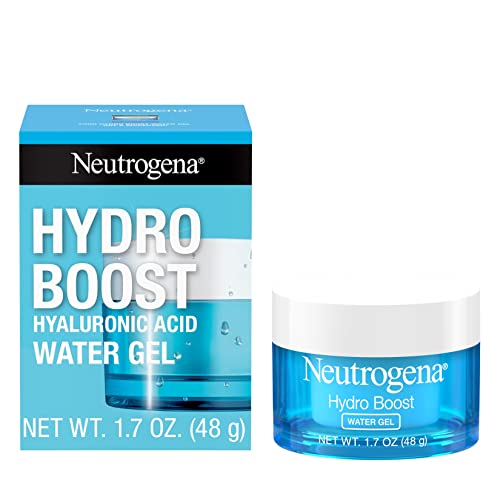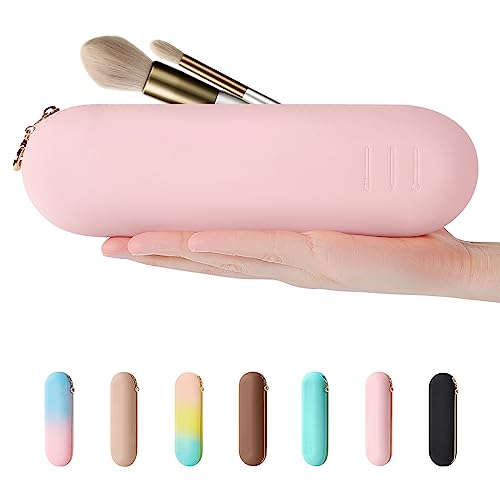
Is a Facial Gel Moisturizer Suitable for Oily Skin?
Are you tired of dealing with oily skin that seems to attract breakouts and shine throughout the day? If so, you’re not alone. Many individuals with oily skin struggle to find the right moisturizer that won’t exacerbate their already shiny complexion. That’s where facial gel moisturizers come in. In this blog post, we’ll dive into the world of gel moisturizers and explore their suitability for oily skin. Whether you’re a skincare enthusiast or someone seeking a solution to your oily skin woes, we’ve got you covered. Get ready to discover if a facial gel moisturizer could be the key to achieving balanced and hydrated skin, even if your skin tends to be oilier than most.
Top Picks for Hydrating Facial Gel Moisturizers
Understanding Oily Skin
Oily skin is a common skin type that is characterized by excessive sebum production. It can be frustrating to deal with, as it often leads to shiny skin, clogged pores, and an increased risk of acne breakouts. Understanding the causes and characteristics of oily skin is crucial in order to develop an effective skincare routine that addresses its specific needs.
Characteristics of Oily Skin
Oily skin has several distinct characteristics that set it apart from other skin types. These include:
- Excessive Sebum Production: Oily skin produces more sebum than normal or dry skin types. Sebum is an oily substance that is naturally produced by the sebaceous glands in the skin. While sebum is essential for keeping the skin moisturized, excessive production can lead to oily skin.
- Shiny Appearance: Oily skin often has a shiny or greasy appearance, especially in the T-zone (forehead, nose, and chin) area.
- Large Pores: People with oily skin tend to have larger pores. This is because the excess sebum can clog the pores, leading to blackheads, whiteheads, and acne breakouts.
- Acne Prone: Oily skin is more prone to acne due to the increased sebum production and clogged pores. Acne can manifest as pimples, blackheads, or cysts on the face, chest, and back.
Causes of Excessive Oil Production
Understanding the causes of excessive oil production can help in managing oily skin effectively. Some common factors that contribute to oily skin include:
- Hormonal Changes: Hormonal fluctuations, particularly during puberty, menstruation, or pregnancy, can trigger increased sebum production.
- Genetics: Oily skin can be hereditary, meaning that you may be more prone to it if your parents or close family members have oily skin.
- Stress Levels: High stress levels can stimulate the production of stress hormones, which in turn can lead to excess oil production.
- Environmental Factors: Humidity, heat, and pollution can all contribute to oily skin. Hot weather can cause the skin to produce more sebum, and pollution can clog the pores and stimulate oil production.
Importance of Proper Skincare for Oily Skin
Proper skincare is essential for managing oily skin and maintaining a healthy complexion. Here’s why it matters:
- Balanced Moisture: While it may seem counterintuitive, oily skin still needs hydration. Using the right moisturizers can help balance the skin’s moisture levels and prevent it from overcompensating by producing even more oil.
- Prevention of Breakouts: A well-designed skincare routine can effectively control excess oil and prevent clogged pores, reducing the likelihood of acne breakouts.
- Mattifying Effect: The right products can help control shine and give the skin a more matte appearance, providing a smoother canvas for makeup application.
- Skin Health: By addressing the specific needs of oily skin, proper skincare can help maintain healthy skin, prevent premature aging, and reduce the risk of long-term damage.
What is a Facial Gel Moisturizer?
Facial gel moisturizers have gained popularity in recent years for their lightweight and hydrating properties. In this section, we will delve into what exactly a facial gel moisturizer is, how it differs from other types of moisturizers, and the potential benefits it offers, especially for those with oily skin.
Understanding Facial Gel Moisturizers
Facial gel moisturizers are lightweight moisturizers that have a gel-like consistency. They are typically water-based and contain a high concentration of humectants, such as hyaluronic acid or glycerin. These humectants have the ability to attract and retain moisture, which helps to keep the skin hydrated.
Compared to other types of moisturizers, such as creams or lotions, facial gel moisturizers have a thinner texture and are quickly absorbed into the skin. This makes them suitable for all skin types, but particularly appealing to those with oily or combination skin, as they provide hydration without leaving a heavy or greasy residue.
Key Features of Facial Gel Moisturizers
To understand the benefits of facial gel moisturizers, let’s explore their key features:
- Lightweight Texture: The gel-like consistency of facial gel moisturizers allows for quick absorption into the skin, making them ideal for those who prefer a weightless feel.
- Hydration: Facial gel moisturizers are formulated with humectants that draw moisture to the skin and help lock it in, ensuring long-lasting hydration.
- Oil Control: One of the standout features of facial gel moisturizers is their ability to regulate oil production. They provide moisture without adding excess oil to the skin, making them suitable for oily or combination skin types.
- Cooling Sensation: The lightweight and water-based nature of facial gel moisturizers can provide a refreshing and cooling sensation on the skin, which can be particularly soothing during hot and humid weather.
Benefits for Oily Skin
Facial gel moisturizers offer several benefits for oily skin types. Here are some reasons why they are highly recommended:
- Non-Comedogenic: Facial gel moisturizers are typically non-comedogenic, meaning they are less likely to clog pores or contribute to acne breakouts, making them suitable for those with oily and acne-prone skin.
- Lightweight Hydration: Oily skin often requires hydration without the heaviness that can exacerbate oiliness. Facial gel moisturizers provide the necessary moisture without leaving a greasy residue, helping to balance oil production.
- Mattifying Effect: Some facial gel moisturizers are formulated with ingredients that have a mattifying effect on the skin. These products can help control excess oil and shine, providing a more balanced and matte appearance.
- Quick Absorption: Oily skin tends to absorb products more rapidly. Facial gel moisturizers are easily absorbed, delivering hydration to the skin without leaving a lingering sticky or greasy feeling.
Advantages of Facial Gel Moisturizers for Oily Skin
Having oily skin can be a challenge when it comes to finding the right skincare products. One of the most crucial steps in any skincare routine is moisturizing, but using the wrong moisturizer can exacerbate the problem by adding excess oil to already oily skin. This is where facial gel moisturizers come in. In this blog post, we will explore the specific advantages that facial gel moisturizers offer for individuals with oily skin.
Lightweight and Non-Greasy Formulation
One of the key advantages of facial gel moisturizers is their lightweight and non-greasy formulation. Unlike traditional creams or lotions, gel-based moisturizers have a thinner consistency that allows for quick absorption into the skin. This lightweight texture ensures that the moisturizer does not sit heavily on the skin’s surface, leaving behind a greasy or sticky residue that can contribute to clogged pores and breakouts.
Benefits:
- Lightweight and non-greasy formula
- Quick absorption into the skin
- No greasy or sticky residue
Hydration without Clogging Pores
Another advantage of facial gel moisturizers is their ability to provide hydration without clogging pores. People with oily skin often worry that moisturizers will further congest their pores and lead to acne breakouts. However, gel-based moisturizers are typically water-based and contain ingredients that are less likely to clog pores, making them suitable for oily skin types.
Benefits:
- Provides hydration without clogging pores
- Less likely to cause acne breakouts
- Suitable for oily skin types
Regulates Oil Production
Facial gel moisturizers also have the potential to regulate oil production, which is particularly beneficial for individuals with oily skin. These moisturizers often contain ingredients such as hyaluronic acid or glycerin, which help to balance the skin’s natural oil production. By providing adequate hydration, gel-based moisturizers can help prevent the skin from overproducing oil, resulting in a more balanced and less oily complexion.
Benefits:
- Regulates oil production
- Balances the skin’s natural oil production
- Prevents overproduction of oil
Factors to Consider When Choosing a Facial Gel Moisturizer for Oily Skin
Are you tired of dealing with excess oil on your face? Do you struggle to find a moisturizer that doesn’t leave your skin feeling greasy? If you have oily skin, it’s essential to choose the right facial moisturizer that will hydrate your skin without adding to the oiliness. In this blog section, we will discuss the important factors to consider when selecting a facial gel moisturizer for oily skin. By understanding these factors, you can make an informed decision and achieve a balanced, healthy complexion.
1. Examine the Ingredients
The first step in choosing a facial gel moisturizer for oily skin is to examine the ingredients list. Look for the following key ingredients that are beneficial for oily skin:
- Hyaluronic Acid: This ingredient hydrates the skin without adding excess oil, making it an excellent choice for oily skin types.
- Salicylic Acid: Known for its ability to unclog pores and control oil production, salicylic acid can help regulate sebum production and prevent breakouts.
- Niacinamide: This ingredient helps to regulate oil production, reduce pore size, and control shine, making it suitable for oily skin.
- Glycerin: A powerful humectant, glycerin attracts and retains moisture in the skin without adding greasiness.
2. Consider Your Specific Skin Concerns
While oily skin is the primary concern, you may also have other specific skin concerns that need to be addressed. Consider the following factors when choosing a facial gel moisturizer:
- Acne-Prone Skin: If you struggle with acne, look for a moisturizer that is non-comedogenic and contains acne-fighting ingredients like tea tree oil or benzoyl peroxide.
- Sensitive Skin: If you have oily and sensitive skin, opt for a moisturizer that is fragrance-free and formulated with soothing ingredients like aloe vera or chamomile.
- Anti-Aging: If you are looking for a moisturizer that addresses both oily skin and signs of aging, consider one that contains antioxidants like vitamin C or retinol.
3. Understand Personal Preferences
Everyone has different preferences when it comes to skincare. Consider the following factors to find a facial gel moisturizer that suits your personal preferences:
- Consistency: Some people prefer lightweight gel moisturizers that absorb quickly, while others may prefer slightly thicker formulas for added hydration.
- Fragrance: If you have sensitive skin or are sensitive to fragrance, opt for fragrance-free or naturally scented products.
- Packaging: Consider the packaging and ease of use. Some prefer pumps or tubes for hygiene purposes, while others prefer jars for easy product access.
Final Verdict: The Best Moisturizer for Oily Skin
In conclusion, facial gel moisturizers can be a great option for those with oily skin. Their lightweight formula and pore-friendly hydration make them suitable for this skin type. However, the decision to use a facial gel moisturizer should be based on personal preferences and specific skin concerns. It is always a good idea to consult with a dermatologist or conduct patch tests to find the best option for your skin.
Frequently Asked Questions about Facial Gel Moisturizer
What are the benefits of using a facial gel moisturizer for oily skin?
Using a facial gel moisturizer for oily skin can offer several benefits. Firstly, a gel-based moisturizer is typically lightweight and non-greasy, making it suitable for oily skin types. It helps to hydrate the skin without adding excess oil or clogging pores.
Another advantage is that gel moisturizers often have a mattifying effect, which can help control shine and reduce the appearance of oiliness throughout the day. They usually contain ingredients such as hyaluronic acid, which not only provide hydration but also help balance the skin’s moisture levels.
Additionally, some gel moisturizers for oily skin may have oil-regulating properties. They can contain ingredients like salicylic acid or niacinamide, which can help control sebum production and minimize the occurrence of breakouts. These ingredients can also assist in refining the skin’s texture and reducing the appearance of pores.
Overall, using a facial gel moisturizer specifically formulated for oily skin can provide lightweight hydration, mattifying effects, oil control, and potential improvement in skin texture, making it a beneficial addition to a skincare routine for those with oily skin.
How should one incorporate a facial gel moisturizer into their skincare routine for optimal results on oily skin?
To incorporate a facial gel moisturizer into your skincare routine for optimal results on oily skin, follow these steps:
- Cleanse your face: Start by washing your face with a gentle cleanser specifically formulated for oily skin. This will remove any dirt, excess oil, and impurities, preparing your skin for moisturization.
- Tone your skin (optional): If you prefer, you can use a toner formulated for oily skin to further remove any remaining impurities and balance your skin’s pH levels. This step is not essential but can be beneficial for some individuals.
- Apply the gel moisturizer: Take a small amount of the facial gel moisturizer and gently massage it onto your face using upward circular motions. Be sure to cover your entire face, including the forehead, cheeks, nose, and chin. Avoid applying too much moisturizer, as it can make your skin feel greasy.
- Allow it to absorb: Give your skin a few minutes to fully absorb the moisturizer before moving on to the next step. This will ensure that your skin benefits from the moisturizing properties without feeling heavy or oily.
- Apply sunscreen (daytime only): If it’s daytime, it’s essential to protect your skin from harmful UV rays. Choose an oil-free and lightweight sunscreen with a high SPF and apply it after the moisturizer has fully absorbed. This step is crucial in preventing sun damage and maintaining healthy skin.
- Repeat in the evening: If you have an evening skincare routine, repeat the above steps before going to bed. Cleanse your face, apply the gel moisturizer, and allow it to absorb before moving on to any additional products in your routine.

Hey, I’m Ava Wilson—a skincare enthusiast and a certified esthetician. I’m dedicated to sharing my knowledge and empowering others to achieve healthy, glowing skin through simple, effective routines and natural remedies. Join me on this exciting skincare journey, and let’s unlock your skin’s potential for a confident, beautiful you.


















